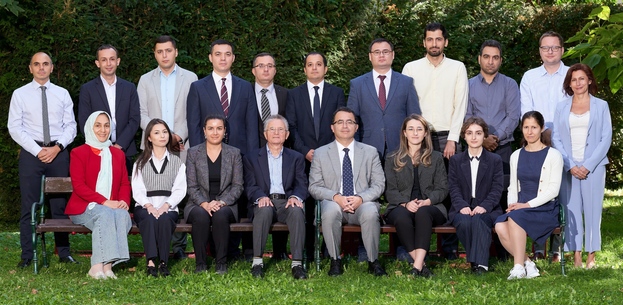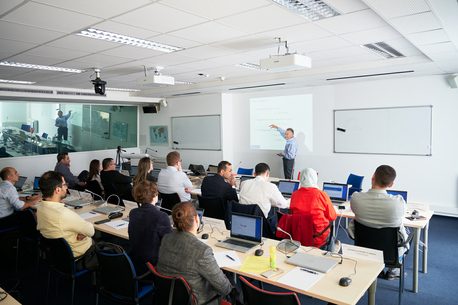- English | Русский


Dynamic Stochastic General Equilibrium (DSGE) models have become an important tool for policy scenario analysis and forecasting in institutions involved in macroeconomic policymaking. As part of the efforts to develop the capacity to design and use these models in countries from Central, Eastern and Southeastern Europe, the Caucasus and Central Asia, the IMF delivered a course on DSGE models at the JVI, during October 2-13, 2023. The course was attended by 19 participants from 13 countries, who work in central banks, ministries of finance, and other government agencies.
The course described the main structure of DSGE models and discussed their use for monetary and fiscal policy analysis. The first part of the course presented the main building blocks of these models, including the real business cycle model and the baseline new Keynesian model, and then gradually incorporated other aspects—i.e., labor market frictions, open economy characteristics, financial frictions, and fiscal policy. The second part focused on the practical use of DSGE models, by discussing how to bring these models to the data and use them for forecasting and scenario analysis. In addition, to illustrate the policy use of these frameworks, participants worked with a small version of the DSGE model of the National Bank of Romania, to prepare different policy scenarios on some of the key insights of the new IMF Integrated Policy Framework and give short presentations, which strengthened peer-to-peer learning synergies.
The course featured significant learning gains and participants found it useful. They envisage to use the knowledge gained to: (i) build their own DSGE model for their countries; (ii) work on extensions of already-built models; and (iii) do policy research. Moreover, the course was highly rated by participants. As summarized by one of their comments: “The course provided an excellent balance between theory and application. The usage of PDFs and codes enhanced my ability to follow the material and will help me retain and re-utilize the course material in the future in my institution. Presenters were friendly, interactive, and knowledgeable. The course atmosphere was fertile for learning and welcoming. Very impressed.”
Felipe Zanna, Deputy Division Chief, IMF